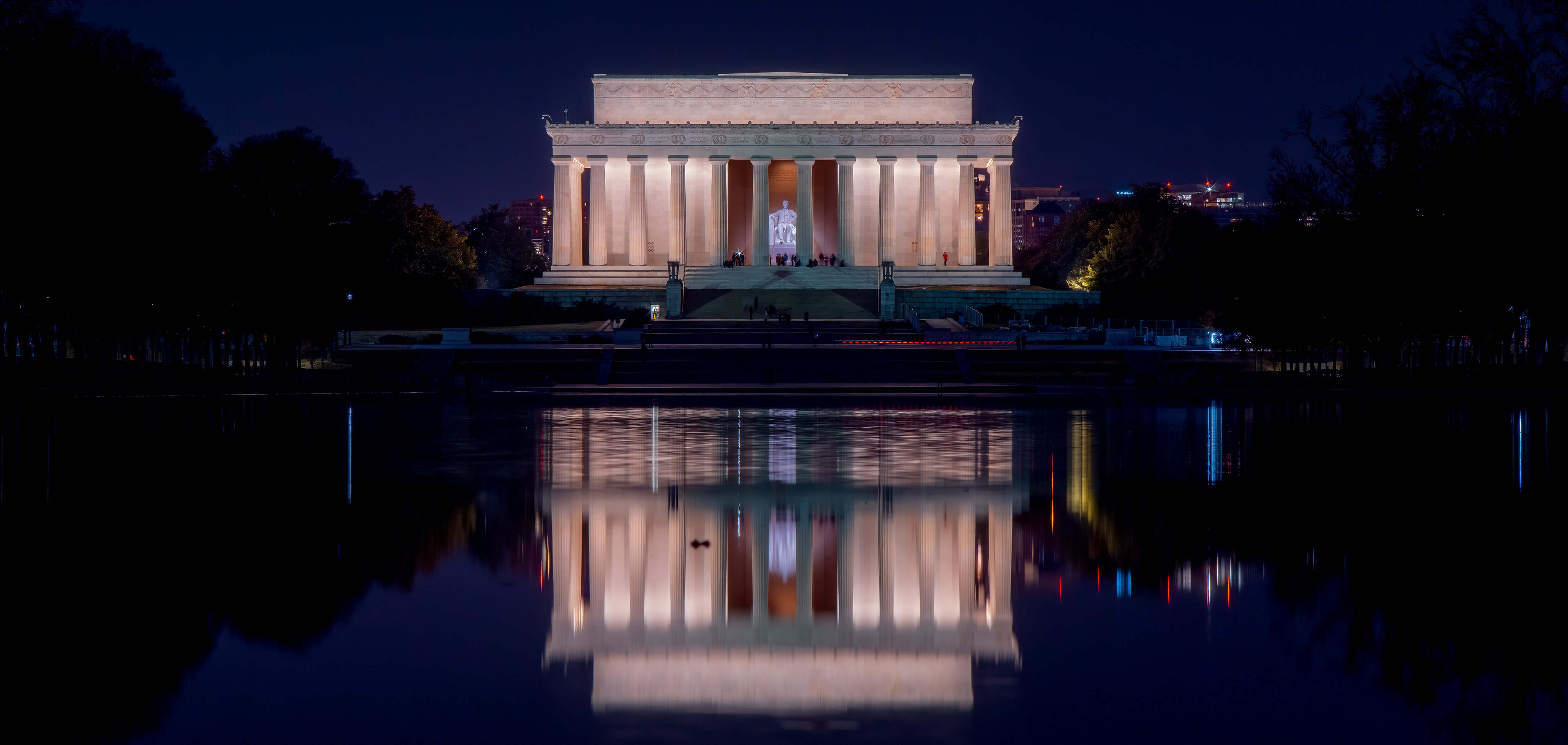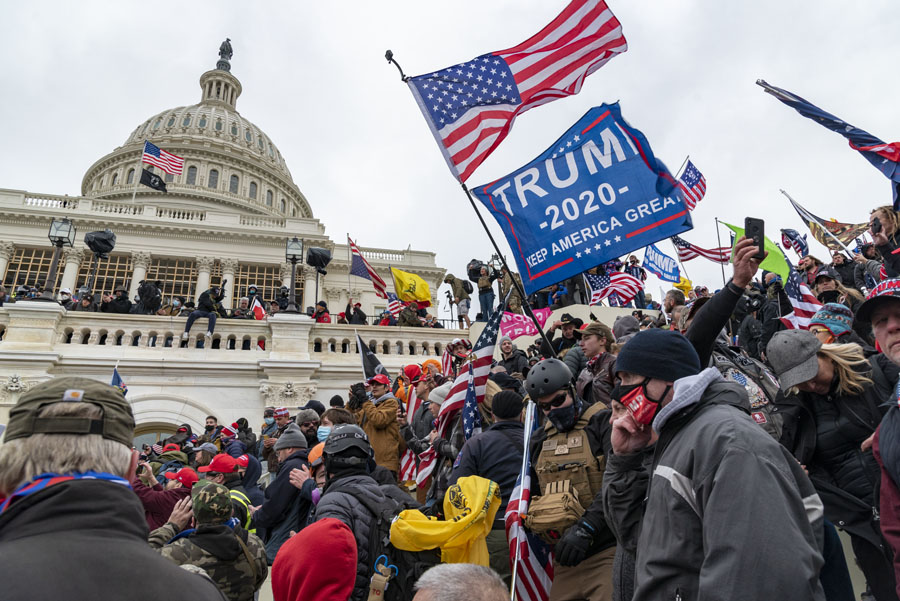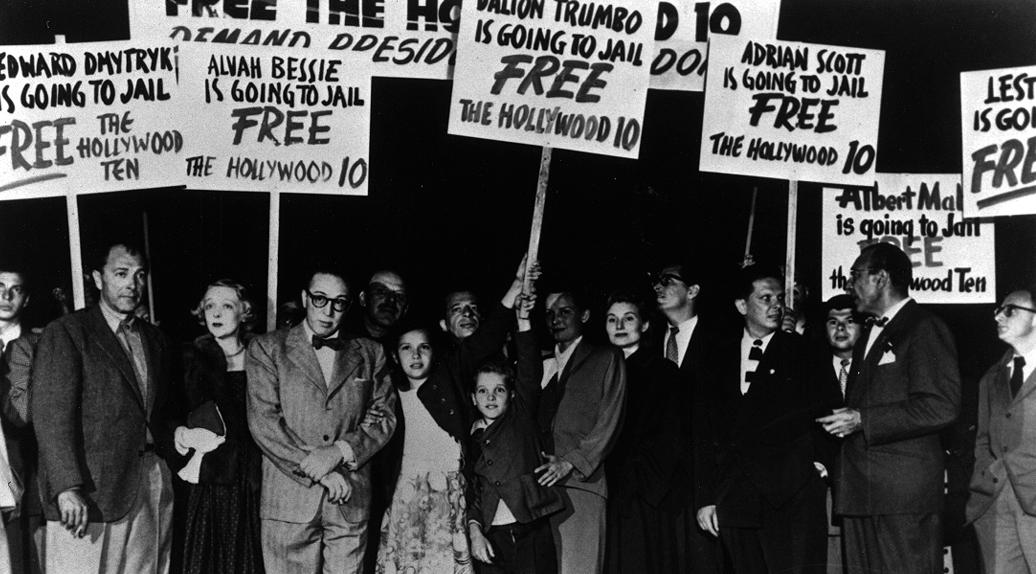America in Crisis? A View From a Refugee of a Failed State

US News and World Report declares that “Anxiety Grows Among Americans as Crisis After Crisis Spirals Out of Control.” The New York Times warns: “‘A Crisis Coming’: The Twin Threats to American Democracy.” NPR reports that “6 in 10 Americans Say U.S. Democracy is in Crisis as the ‘Big Lie’ Takes Root.”
Far be it from me, an asylee from Syria who became an American citizen while my birth country was destroyed and depopulated, to doubt the common wisdom—shared by left and right and center alike—that America is in crisis. But let me just observe that if this is America’s idea of a crisis, y’all are pikers. The U.S. system of government was designed to manage crises, and while everyone has been wringing hands and gnashing teeth about the crisis of the day, it has been doing so pretty well. It got rid of a dangerous president with a minimum of violence. It is busily prosecuting his crimes. It has not seen an explosion of political violence or the consolidation of power in the hands of anyone in response. And it has not curtailed people’s constitutional rights. Take it from a Syrian, you guys are doing fine.
More fundamentally, the recent American experience of managing crises is fully in keeping with the nation’s history. Indeed, the more relevant and revealing question than whether the United States is in some kind of crisis is when exactly the United States was not in crisis.
Within a few years of gaining its independence, after all, the leaders of the new republic had to deal with an insurrection that challenged the authority of the federal government to impose taxes, with insurrectionists contending that such a step required local representation. The insurrectionists echoed the very ethos that drove the American Revolution. The crisis was successfully managed by President George Washington, who waited until he received support from the states of Virginia, Maryland, New Jersey, and Pennsylvania before leading an expedition to crush the rebels. The insurrectionists backed down, and only a few arrests took place. But the crisis, according to most historians, served to enhance the legitimacy and credibility of the fledgling federal government and strengthened the nascent sense of American nationalism.
Then came the contentious election of 1800, pitting the incumbent ticket of John Adams and Charles Pinckney of the Federalist Party against that of Thomas Jefferson and Aaron Burr of the Democratic-Republican Party. The election pitted two radically different visions for the country against one another in a contest thrown to the House of Representatives, which took 36 ballots to select Jefferson as the winner.
Two years later, one founder killed another in an illegal duel. Aaron Burr would not be tried for this murder of Alexander Hamilton, but years later, he would be tried for treason over activities aimed to either create an independent nation or incite a rebellion within existing U.S. territories. Surely one founding father killing another and facing trial for treason is not a simple affair or politics as usual. Yet the country did not unravel: The system, even in its infancy, successfully managed the crisis.
Over the next few decades, the White House was sacked and burned. There was a war with Mexico. There was the Civil War—the biggest and most dangerous crisis of them all, the one that temporarily broke the system.
Every election cycle brought serious controversies, every new state admitted before the Civil War demanded a rancorous compromise on the issue of slave ownership, and every treaty reached with Native Americans came in the aftermath of bloody conflict and was eventually ignored with tragic consequences for the affected population.
The striking feature of this country’s history from the point of view of someone who came here as an adult from a tyrannically murderous failed state is that it seems to have been in constant crisis management mode since it was a twinkle in the eyes of the “enlightened” and flawed men who created it in the second half of the 18th century. Indeed, the country seems to have been designed by these very men to exist in perpetual crisis mode. They saw crisis management not simply as preferable to tyranny, but as the only way to prevent tyranny, even if crisis management clogs the administration of the country and convulses the society in perpetual argument. The founders, in other words, substituted crisis for King: The crisis is dead, long live the crisis.
The Constitution—by creating a system of power divided among the different branches of government, and within each of them, and by insisting on certain guarantees for basic liberties—creates an overall context in which any discussion over any government decision or policy can potentially generate a crisis, because no decision can be made without involving people from a variety of social, economic, and ideological backgrounds, and without them agreeing and compromising, eventually. The majority does not automatically have the ability or the right to do what it wants, nor does some empowered minority. And that’s frustrating for everyone concerned—all the time. Moreover, the plethora of rules, written and unwritten, that have evolved over the decades have come to incentivize and reward those who are committed to brinkmanship—and that’s terrifying, over and over again.
With the end of the Cold War, perhaps aided by the absence of an existential external threat, this brinkmanship became the order of the day not only in national politics, but increasingly in state and local politics as well. Crises beget other crises—the cost of each crisis feels low stakes without a nuclear superpower aiming missiles at us.
At its heart, the American system of governance is quite cynical really, which is odd as the American people are anything but cynical. It calls on us, more often than we like to admit, to weigh different flawed options against each other and settle for the lesser evil in the name of the greater good. Neither the politicians nor the policies they propose are ever ideal, and the compromises they reach are invariably imperfect.
Yet the net result of all this over time has been steady piecemeal progress in nearly all fields, including when we examine things from a moral and ethical perspective. No great leaps forward happen, the inching forward incrementally happened on occasions at such a fast and furious pace that it can seem like a giant leap in retrospect.
In a sense, the American Revolution has never stopped. It is still ongoing, representing the oldest and longest continuously unfolding revolution that the world has ever known. And what is a revolution but a long series of crises.
There comes a time, every now and then, when a pied piper appears on the scene, and people from all different backgrounds, each for his or her own reasons, find in him a messiah of sorts and follow him, willingly, blindly, moving from one crisis into another, challenging the very system that gives them the right and opportunity to be who they are and do what they do—until, that is, cooler heads prevail or a different kind of crisis serves as a wake-up call.
That process is unfolding today, and many Americans are understandably alarmed. Today’s crisis is of a different caliber and magnitude, they say, from those of our memory and in our historical reading. It reminds many Americans of that one time when the system really did break and we ended up in a civil war.
But even if we accept the logic of this pessimism, this new American civil war is a cold one, and the partition that is emerging between the warring sides—in this case, the blue states and the red states—is rather soft. The goings-on might still clog the administration of the country and convulse society, but the system seems to be trudging on. Is it because it’s early days and the Cold Civil War will warm up over time? Or is it because we have already learned something from that previous difficult experience? Time will tell.
The important thing is to remain vigilant. The key to successful crisis management is to take every crisis seriously.
When I look at America today, I see a lot of people saying and doing things that should be considered un-American. Then again, I also see a lot of people trying to do something about it, and that gives me hope. The system seems to be working.
Whatever crisis (or crises) America is living through at any specific moment is always billed as “unprecedented” or “existential.” And sometimes, they are existential. We should never not be alarmed. Yet we should also never be too alarmed. Otherwise, we will either embrace inaction or embark on the wrong course of action. Since crisis management is the essence of our way of political life, we should never give up on dialogue; we cannot afford to write off the other side or to reduce our discussions to a mutual exchange of barbs, epithets, and slogans. We need to do what President Joe Biden and House Speaker Kevin McCarthy did recently: In the midst of all the frenzy, to which they themselves have contributed, they sat down and hammered out a workable deal on the debt ceiling. It’s not perfect, but it is workable in the circumstances. Those who want better—in other words, all of us—need to vote more, lobby more, organize more, and speak out more loudly, knowing that at the end of the day, we always have to settle for less. That is how the system works, even—nay, especially—when the perceived crisis seems to be so “existential” and “unprecedented.”
There are no magic ingredients in the American stew, no secret sauce and no secret recipe. The ingredients are all too mundane and known, and have been making all the difference for 250 years.
Take it from a Syrian who has become an American.





